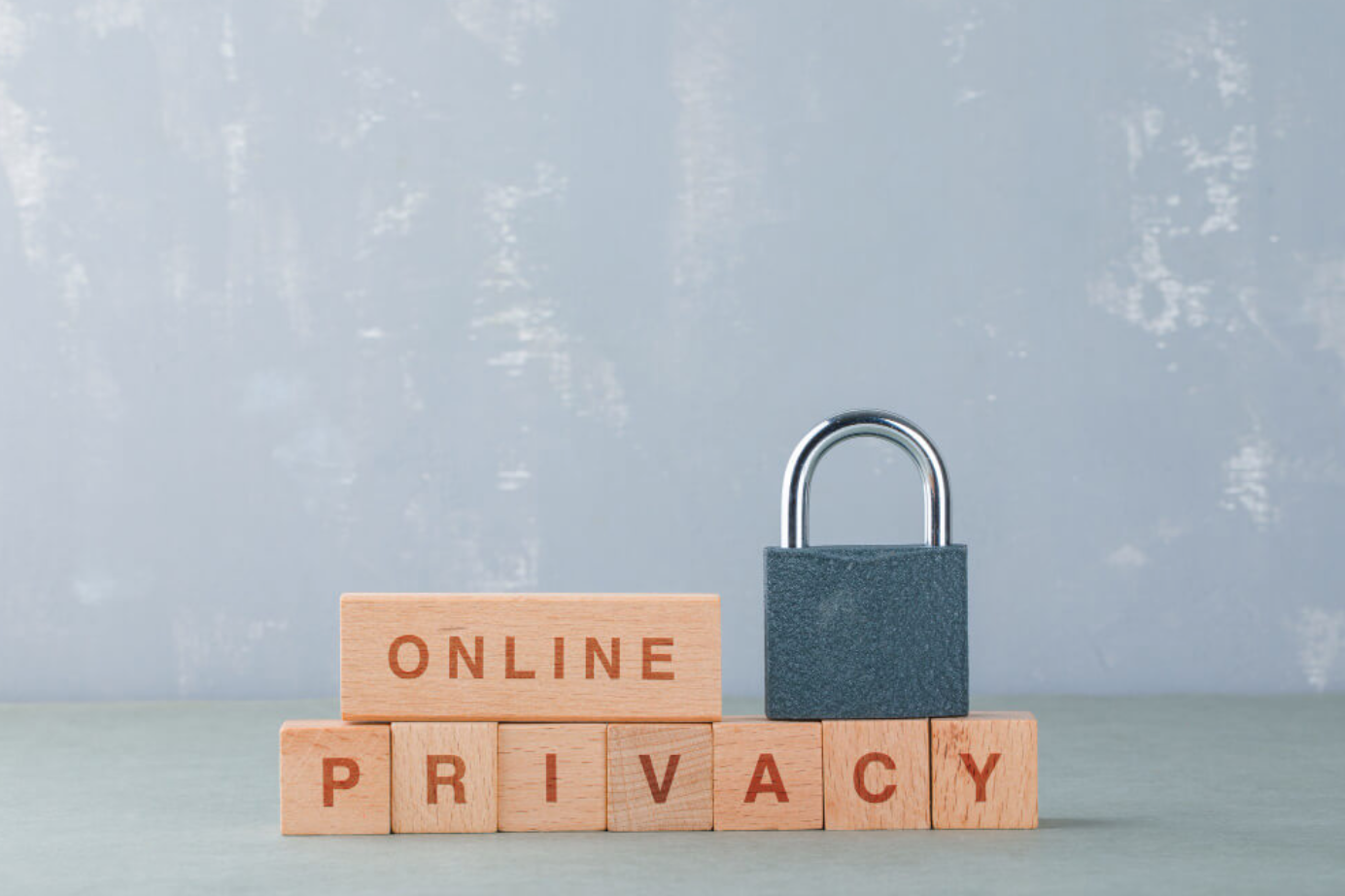As the landscape of data privacy evolves, staying informed and proactive is key to ensuring that your data is used responsibly and ethically.
Data privacy is a critical issue that affects everyone who uses the internet. It protects personal information from unauthorized access, use, or disclosure. Data privacy is essential because it safeguards our personal information, ensuring that it is used in ways that respect our rights and freedoms.
Over the years, data privacy regulations have evolved to address the growing concerns about how personal data is handled online. Two significant regulations in this area are the General Data Protection Regulation (GDPR) and the California Consumer Privacy Act (CCPA). These laws aim to give individuals more control over their personal data and impose stricter rules on how businesses collect, use, and protect this information.
How Your Data is Collected Online
When you browse the internet, interact with websites, or use online services, your data is collected in various ways. The most common data collection methods include cookies, trackers, and profiling.
Cookies are small files that websites store on your device. They remember your preferences and activities, such as login information and shopping cart contents, making your browsing experience smoother.
Trackers are tools that monitor your behavior across multiple websites, building a profile of your interests and habits. This information helps companies understand your online activities and preferences.
Data profiling involves analyzing this collected data to predict your future behavior, such as what products you buy or what content you like.
Businesses highly value your data because it lets them personalize services, target advertisements, and improve their products. For example, targeted ads are a major part of the online advertising industry, expected to reach $740.3 billion in 2024.
Companies can offer tailored products and services by understanding your preferences, increasing their chances of making sales and growing their business.
An Overview of GDPR and CCPA Protections
The GDPR and CCPA provide several critical protections that help individuals control their personal data. Both regulations share similar principles designed to enhance data privacy and give people more power over their information.
- Right to Access: Both GDPR and CCPA allow you to request and receive a copy of the personal data a company holds about you. This transparency helps you understand what information is collected and how it is used.
- Right to Rectification: If you find inaccuracies in your data, both regulations give you the right to request corrections. This ensures that the data companies use is accurate and up-to-date.
- Right to Erasure (Right to be Forgotten): You can request the deletion of your personal data. This right allows you to remove information that is no longer necessary or that you no longer want companies to have.
- Right to Restriction of Processing: You can limit how companies use your data. For example, you might want to restrict data processing while a dispute about its accuracy is resolved.
- Right to Data Portability: Both regulations allow data to be requested in a structured, commonly used format. This makes it easier to transfer your data to another service or organization.
- Right to Object: You can object to the processing of your data for certain purposes, such as marketing. This helps you control how your data is used in ways that may affect you directly.
These shared protections are designed to give people more control and ensure consumer data is handled responsibly by businesses.
GDPR vs. CCPA

Although they share common goals, the EU and US privacy laws differ in various aspects—scope, specific consumer rights, and enforcement mechanisms. Understanding these differences is crucial for both businesses and consumers.
Territorial Scope and Applicability
Who is affected by the GDPR? This data law applies to any company that processes the data of individuals in the European Union, no matter where the company is based. This means even a company outside the EU must comply if it handles EU residents’ data.
For example, an online university offering affordable online bachelor degree programs to EU students must adhere to GDPR to protect their data.
In contrast, the California Consumer Privacy Act (CCPA) applies to businesses operating in California or those that collect data from California residents and meet specific criteria, such as having a certain revenue threshold or handling large amounts of personal data.
Thus, an online university serving California residents must comply with CCPA rules, especially if it collects substantial personal data or meets other specified criteria.
Specific Rights Granted to Consumers
While GDPR and CCPA grant consumer rights, GDPR offers more extensive protections and covers a broader range of data processing activities.
CCPA focuses particularly on selling personal data, giving California residents the right to opt out of having their data sold. This emphasis on data sales is a distinctive feature of CCPA, whereas GDPR addresses broader data processing issues.
Enforcement Mechanisms and Penalties
GDPR enforcement is carried out by data protection authorities in each EU member state, and companies that violate the regulation can face substantial fines, reaching up to 20 million euros or 4% of their annual global turnover, whichever is higher.
CCPA enforcement is the responsibility of the California Attorney General, and penalties for non-compliance include fines and potential damages. While both regulations impose financial penalties, the scope and mechanisms of enforcement differ significantly between GDPR and CCPA.
How to Exercise Your Data Privacy Rights
Exercising your legal rights is a crucial step in taking control of your personal information. Here’s how you can do it:
Identify Companies Collecting Your Data
Start by identifying which companies collect your data. Check the privacy policies of the websites and services you use. These documents usually list the types of data collected and how it’s used. According to a Pew Research Center survey, 79% of Americans are concerned about how companies use their data.
Submit Data Access Requests
Many companies provide online forms or contact information to request access to your data.
When requesting, be specific about the data you want to see. This helps the company process your request more efficiently. You may need to provide identification to verify your request.
Request Data Rectification or Erasure
If you find any inaccuracies in your data or want it deleted, you can request rectification or erasure.
Contact the company’s data protection officer or use the forms they provide. Clearly explain what needs to be corrected or why you want the data erased.
Under GDPR, companies are required to comply with these requests within a month.
Opt-Out of Data Sales and Targeted Advertising
The CCPA grants you the right to opt out of the sale of your personal data.
Many websites provide a “Do Not Sell My Personal Information” link, often found in the footer of the homepage. You can also adjust privacy settings in your browser to block trackers and cookies used for targeted advertising.
Utilize Resources and Tools
There are numerous tools and resources available to help you manage your data privacy.
Privacy-focused browsers, such as DuckDuckGo, and virtual private networks (VPNs) can enhance your online privacy. Online privacy guides and watchdog organizations like the Electronic Frontier Foundation (EFF) provide valuable information and support for consumers.
The Future of Data Privacy Regulations
As technology evolves, so do data privacy regulations. Emerging trends in data privacy legislation include stricter rules on data collection, enhanced consumer rights, and increased transparency. These changes aim to balance the benefits of data-driven innovation with the need to protect individual digital footprints.
Impact on Innovation and the Digital Economy
While data privacy regulations can impose challenges for businesses, they also promote trust and transparency, which are essential for the digital economy. Companies prioritizing data privacy are more likely to earn consumer trust and loyalty.
Consumers’ Role in Shaping the Future of Data Privacy
Consumers play a crucial role in shaping data privacy regulations. By advocating for strong data privacy protections and being mindful of their data practices, individuals can influence how businesses and governments approach data privacy.
Conclusion
Data privacy is a fundamental right that empowers individuals in the digital age. By understanding and exercising your data privacy rights under GDPR and CCPA, you can take control of your personal information and protect your privacy. As the landscape of data privacy evolves, staying informed and proactive is key to ensuring that your data is used responsibly and ethically.
Empower yourself by learning more about your data privacy rights and advocating for stronger protections. Together, we can create a safer and more transparent digital world.


Join the conversation!